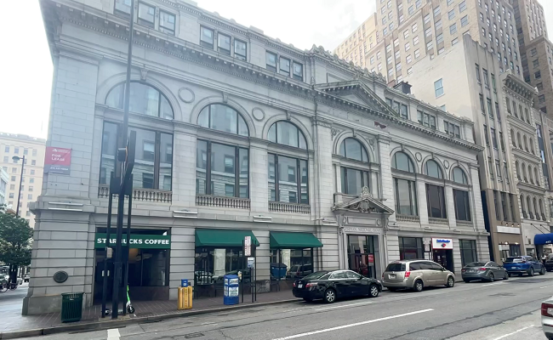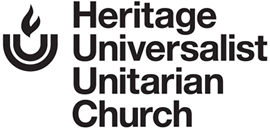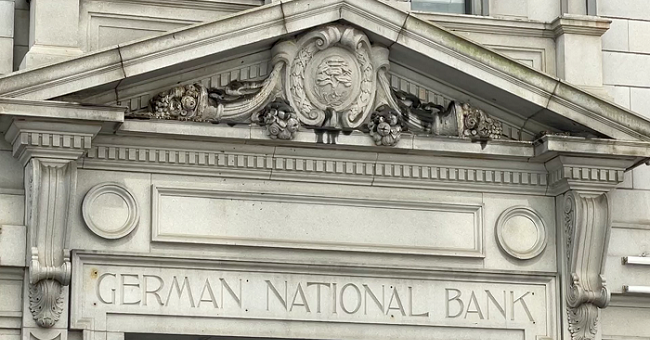by Mike Roberts, Church Historian
Over the course of our nearly 200 years of existence, we have seen many families contribute greatly to the support and functioning of our church. One of those families was the Littell family. Our church records indicate that the name Littell begins to appear in the 1870s when William J. Littell became an active participant in the church and its management. Over the course of nearly forty years, he served many terms on the Board of Trustees and also gave service to many committees. He first appears in December 1870 when he was elected to serve as a deacon in the church.
William J. Littell was born in 1837. He was the son of William M. Littell and Elizabeth Scudder Garrison. This family was among the early settlers of the city. William J.’s grandfather, Samuel Squire Littell, was born in Cincinnati in 1786 when there was little more than a fort and some log cabins along the banks of the Ohio River. In 1859 William married Miss Anna Smith. She gave birth to three children, William Henry, Nettie and Orin. She died at the age of 32 in 1871.
William remarried on November 19, 1872, to Miss Annette Dinsdale McKimmie, a school teacher. Her parents had immigrated to the city from London, England. She bore five children to that marriage, Ada, Cora, Edna, Grace and Clifford. Sadly, Ada, Grace and Clifford all died in infancy.
William took up work in the financial sector of the city. He identified himself as a real estate and money broker and worked out of an office at 7 W. 4th St. in downtown Cincinnati.
During the 1890’s, William chaired a critical committee that attempted to sell property the church owned to raise enough money to build a new church. Our congregation had sold its Plum Street Church and were worshipping in a former Methodist Church on McMillan Street. No satisfactory buyers could be found, so a second small structure was constructed on the site and the “flat building” was rented out to neighborhood businesses including a bakery and a druggist. Eventually, loans were taken out using the property as collateral and along with money earned from the sale of the Plum Street church, enough funds were raised to construct the Essex Place church which opened in December of 1898. During that period, William J. Littell also served as superintendent of the Sunday School. He also returned to his former role of deacon. He remained active in the church until his death in 1919 from a cerebral hemorrhage. One of his final acts was to oppose the sale of the new church in 1913 when another church group offered what seemed to some First Universalist members an attractive sum of money for the Essex building.
Orin Littell, the son of William J., also contributed greatly to the church for a period of forty years. At a young age he was elected a deacon, following in his father’s footsteps. He later became the clerk of the Board of Trustees and served in that capacity for nearly 30 years. The clerk was responsible for keeping the Board of Trustees records and also served as a church treasurer. Late in his years of service, his title was changed to church treasurer but he continued to serve on the board. He also succeeded his father as superintendent of the Sunday School.
Orin was born in 1865 but must have projected a promising future at an early age. In 1881, the German National Bank was opened in downtown Cincinnati on the corner of 4th and Vine. Orin was appointed cashier at the bank and held that position until his death in 1921. In 1906 he was elected President of the local chapter of the American Institute of Banking. During his church tenure as clerk and treasurer, the church did much of its financial business with this bank, including possessing a safety deposit box which held the church’s most valuable records.
Orin was also active in the community. He was a leader in the Masonic organization, served on a review board for the city of Norwood and headed a committee to pressure the Cincinnati Board of Education to build a new high school in the area of the church. He married Miss Alice Bently and they had three children. Orin died suddenly just two years after his father from an intestinal blockage which caused a pulmonary embolism.
During the years from 1870-1920 other Littells attended and joined the church. William J.’s father, William M. became a deacon during the 1880’s. Another son of William M., Joseph, was active during the period and served several terms on the Board of Trustees. At one annual meeting in the early 1900’s, 25 full members of the church (at that time the church offered full and associate memberships) attended the meeting and six of them were Littells.
The last known Littell to serve the church was Cora, Orin’s half-sister. She never married and devoted much of her life to the First Universalist Church, although she also worked as a seamstress at a local department store. She was a member of both the church’s women’s groups as well as the church missionary society. She hosted church functions and volunteered at Longworth Hospital. She served as a delegate to many state conventions and was one of those church members who was always there to help when a job needed to be done. Her name appears throughout our church records from the early 1900’s until her death in 1961. In her will, she bequeathed most of her estate to the church. Our Heritage Room is dedicated to her memory. Her death ended nearly 100 years of Littell membership in the church.

Top image: Detail from the old German National Bank building.
Images courtesy of Mike Roberts.

